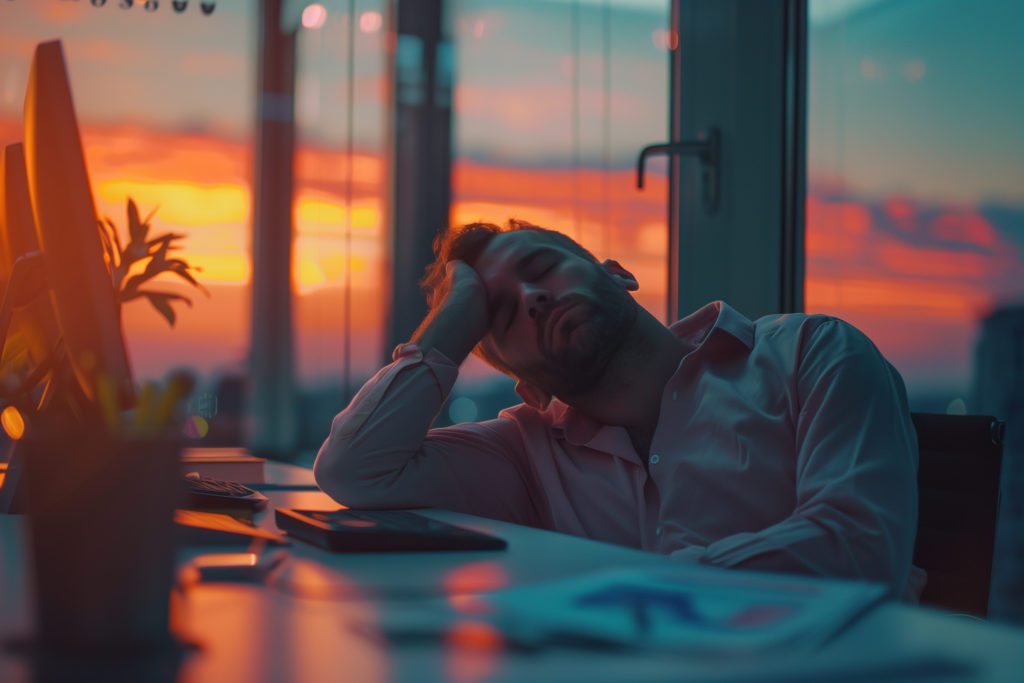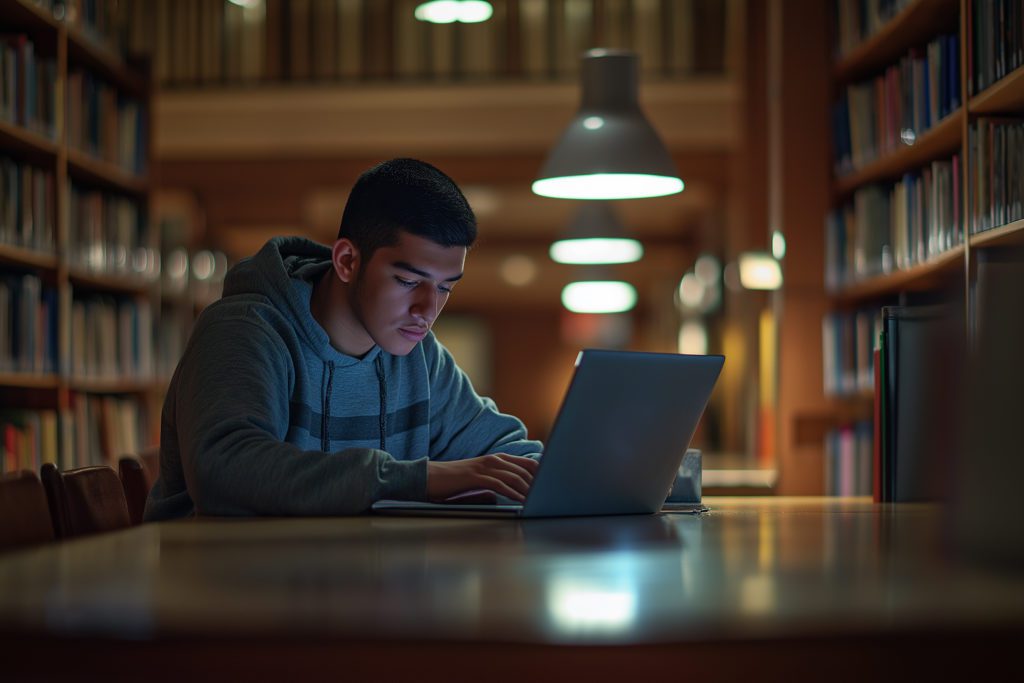
Physical Activity: A Remedy for Sleepiness and Slump
Science has found that exercise is a great way to beat mid-afternoon sleepiness and slump. Walking, yoga, and swimming are ways to lessen fatigue.

Do you often experience sleepiness right after lunch and have trouble keeping your eyes open? Have you ever fallen asleep in an afternoon meeting? Referred to as the afternoon slump, this is the time during which you might experience physical or mental fatigue, tiredness, and a decline in focus.
If you normally down an espresso to beat the mid-afternoon slump, skip it. There’s a better way to get your energy levels up — try breaking a sweat.
What Causes The Afternoon Slump?
Most people experience the midday slump, that’s because of our body’s natural sleep-wake cycle.
Throughout the day, our internal 24-hour clock or circadian rhythm regulates our energy levels. Between the hours of 1 p.m. and 3 p.m., we experience a natural dip in energy levels due to our natural circadian rhythm. This dip triggers the release of melatonin, the sleep-promoting hormone. This makes us feel like lying down and taking a nap.
Other Factors That Contribute to Sleepiness
Besides the natural dip due to our circadian rhythm, there are other factors that contribute to feeling tired:
- Not getting enough sleep at night
- A lack of exercise
- Dietary factors (too many carbs)
- High levels of anxiety
How Exercise Helps With Sleepiness and Slump
If you feel tired often in the afternoon, it’s a good idea to examine your physical activity habits. It could be that you're not moving enough, which is contributing to sleepiness and slump.
Studies have shown that regular exercise can help reduce fatigue and boost energy levels. You don’t have to participate in a 5-mile run or CrossFit session to get the effects either. Low-intensity exercise, such as a gentle stretching routine or a slow walk around the neighborhood have been found to reduce fatigue by 65 percent.
Exercising helps oxygen circulate throughout your body. This enables your body to function better and helps it use energy more efficiently. In addition, when you exercise, your body releases hormones that make you feel more energetic.
Also, regular exercise helps you sleep better at night. One study found that exercising for 150 minutes over the course of a week significantly reduced insomnia symptoms. When you sleep better, it improves your overall well-being and helps you feel well-rested during the day.
What Type of Exercise Helps?
You don’t have to spend hours at the gym every day to experience the benefits. Almost any type of exercise can help boost your energy levels. But, here are some ideas.
Take A Short Walk
Take a 30-minute walk around the block or neighborhood. Walking is something that you can do on your lunch break. And, you’ll feel less tired when you come back to work. The change in scenery will help clear your mind and being outdoors in nature can help you feel less stressed. Studies have shown that sunlight increases the brain’s serotonin levels, which makes us feel more calm.
In addition to boosting energy levels, walking is a very good workout. If you want to burn some serious calories and amp up your energy levels even more, try carrying one to two pound weights during your walks.
Try A Yoga Class
If you’re stuck in an afternoon slump, yoga might not be the thing you think of for energy. But, a yoga class full of invigorating poses could be exactly what you need to fight sleepiness and slump.
Besides being an excellent energy booster, yoga can help improve your sleep quality, so you don’t experience sleepiness and slump as often. This ancient practice also helps relieve stress, which is excellent for fighting fatigue. Look for a class that features active poses that stimulates blood flow throughout the body, such as Vinyasa yoga.
Go Swimming
Swimming is a great exercise no matter your fitness level. From improved mood to reduced fatigue, swimming offers a lot of advantages. Swimming is great for people who have a lot of pain because it’s easy on the joints.
As far as fatigue, in one study, a 20-week swimming program resulted in improvement of fatigue in people with multiple sclerosis.
In addition, swimming increases your natural sleep drive, according to experts. This may help you sleep better at night, which can reduce fatigue and boost your quality of life.
Other Ways To Beat Sleepiness and Slump
It’s clear that exercising regularly can help reduce tiredness during the day. But, there are many other important ways to beat afternoon sleepiness.
Focus on Sleep
Aside from not getting enough exercise, a lack of sleep is probably the most common reason why a person might feel sleepy and fatigued during the day. Most adults need between 7 to 9 hours of sleep a night. However, 1 in 3 adults aren’t getting that. This might explain why so many people experience sleepiness and slump during the day. Here are some ways to get better sleep:
- Stick to the same sleep schedule — even on the weekends. Use Pillow to help you track your sleep.
- Don’t turn to alcohol to help you sleep. Although it might initially help you fall asleep, alcohol negatively affects your sleep quality.
- If you're not sleeping, get up. Don’t lie in bed awake. Do a relaxing activity like listening to sleep sounds. Then return to bed later when you feel tired.
- Take a cat nap. But, keep it to 15-20 minutes before 3 p.m.
Cut Back on Carbs
Like caffeine, carbs will give you an energy boost. But, eating a lot of refined carbs will spike your blood sugar, which will trigger the release of insulin into your bloodstream. This will cause your blood sugar to drop. Then, you’ll feel exhausted later. For energy, choose foods and snacks that are high in fiber, like oranges and blueberries.
Beat the Afternoon Slump for Good
Feeling sleepy mid-afternoon is common enough. There are a myriad of reasons why this happens from your circadian rhythm to a lack of sleep. Working out can naturally reduce afternoon sleepiness and slump.

Written by
Emily Mendez
Emily Mendez is a former therapist and mental health author. She is one of the leading voices in mental health. Emily's writing has appeared in eCounseling, SonderMind, and more. Emily is frequently interviewed by Healthline, Fatherly, INSIDER, Family Circle, and other national media for her advice and expert opinion on the latest mental health topics.
Download Pillow
Get help
Press & News
Legal
Connect
X (Twitter)
Company
Copyright © Neybox Digital Ltd.



